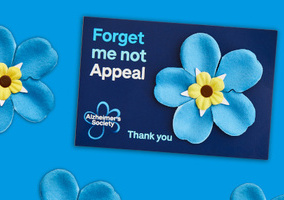When was the last time you carefully looked at the words your charity uses with its supporters, be that in fundraising campaigns, on its website or social-media channels? Did you think about these words from the perspective of their intended audience or purely from the organisation’s viewpoint and what it expects these people to do? How much do you really know about your supporters and which words might resonate with them?
Understanding audiences is important for all types of communication but particularly relevant when thinking about how to persuade donors to keep giving to a charitable cause.
Words that affirm their sense of being kind and caring help create a positive feeling that is a key part of ensuring their continued support. Do you remember the last time someone made you feel good about something you had done? You were more likely to do it again as a result, right? The same principle works with donors.
Unlocking donors’ potential
Charities spend a substantial amount of money each year on recruiting new donors, but comparatively little on retaining them. This in turn results in donors stopping their donations, often after just one year.
We know that small improvements to the level of attrition can generate substantial improvement in the lifetime value of a fundraising database. Research by Adrian Sargeant shows that “a 10% improvement in attrition can yield up to a 200% increase in projected value, as significantly more donors upgrade their giving, give in multiple ways, recommend others and, ultimately perhaps, pledge a planned gift to the organisation”.
At the Institute for Sustainable Philanthropy, we’ve been exploring how to build long-lasting, high-quality relationships with supporters and what charities need to know about them to sustainably increase giving.
Understanding a donor’s moral identity is key to unlocking their potential. The more you reflect their identity through your communications with them, the more likely they are to keep giving and give more. In essence, fundraisers need to focus on uplifting them as people, not just their gift.
Our recent report, Meaningful Philanthropy in the 21st Century: The Role of Self, finds that when major donors act in ways that are aligned with their imperatives, they experience a higher sense of meaningfulness. The more meaning an individual finds in their philanthropy, the more likely they will want to do it again and do more of it. Asking carefully framed questions about their values and identity can help fundraisers communicate with major donors and create meaningful experiences for both the donors and beneficiaries.
In mass communication, when dealing with databases of hundreds and thousands of supporters, there isn’t the freedom to do this in the same way. However, that doesn’t mean it’s impossible. A carefully worded donor survey can provide fundraisers with the insights they need to match their words to the moral identities of supporters.
Moral identity vs charity supporter
Since 2018, we have run 15 surveys with a total of over 49,000 supporters where we have asked them two simple questions: What are the top five words you use to describe yourself as a person and what are the top five words you use to describe yourself as a charity supporter?
The responses tell us that an individual’s moral identity is always more important to them than being a charity supporter.
When an individual describes themselves, there is a higher concentration of moral adjectives such as “caring”, “kind” and “compassionate”. When they describe themselves as a charity supporter, they use words including “support”, “help”, “interested” and “enthusiastic”. These latter words are good but not as warm, emotional and potent as the former ones.
No one-size-fits-all approach
Another key finding from our surveys is that the results for each organisation and cause will differ. Overall, we know that the highest frequency words are always “care” and “compassionate”.
However, when we looked at clusters of words, we discovered that not a single organisation had the same word set. There is no standard template that every charity can use. Instead, each needs to do its own research and take steps to identify how its supporters describe themselves.
Our research shows that using words that match supporters’ moral identities in fundraising communications can dramatically increase charitable giving. For instance, a children’s charity secured a 27% increase in donations after switching from:
And let me also say thank you so much for your very kind support. Our work with poorly children and their families is only possible thanks to people like you.
to
Supporting poorly children like this really is an act of kindness. So I’d like to thank you not only for your generosity, which has changed lives, but also for being the kind of person who really cares enough to support these children and their parents in their time of need.
Using insight to inform word choice isn’t something that should be the preserve of fundraising appeals alone, though. Reflecting supporters’ identity should occur across all communication channels.
It’s about understanding what makes people feel good and then using the power of words to spark these feelings in order to drive retention among supporters and grow fundraising income.
Jen Shang is co-director of the Institute for Sustainable Philanthropy
Related articles












